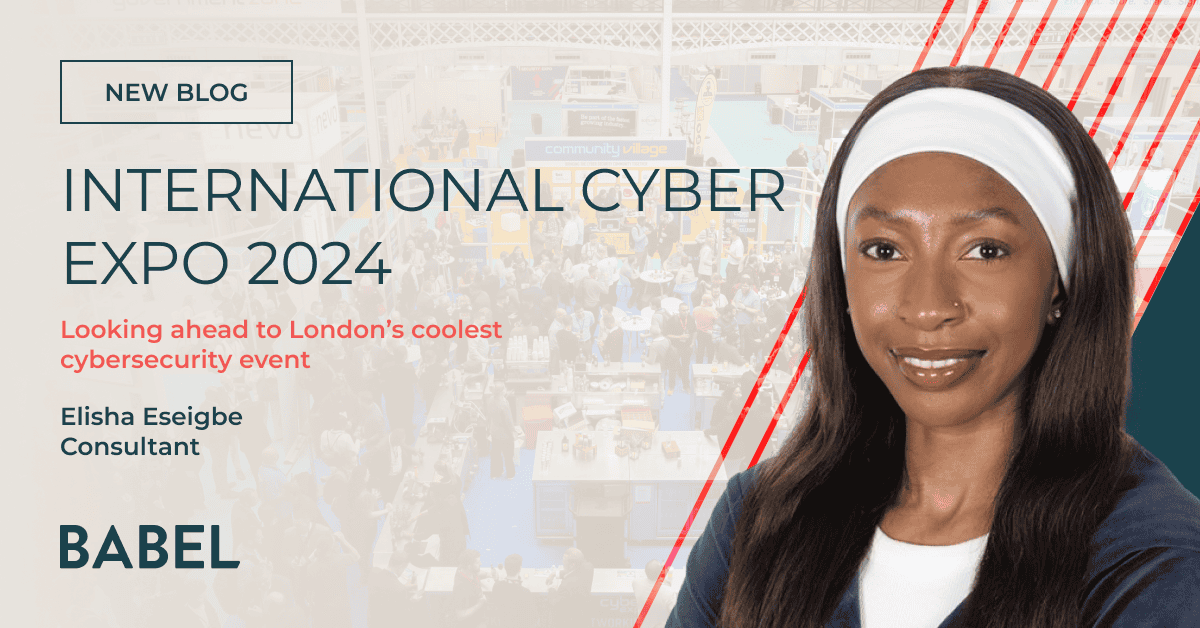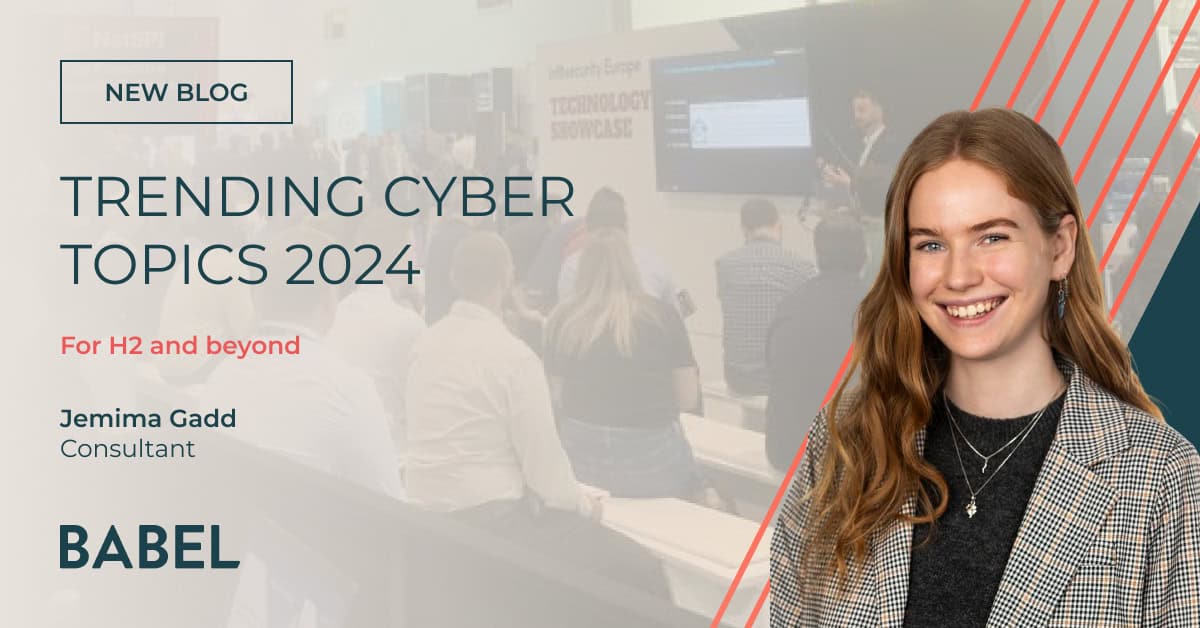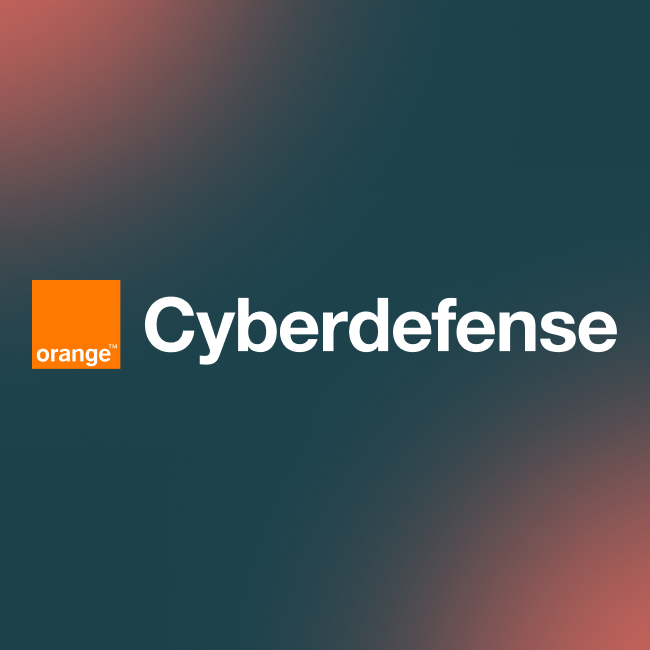Trending cyber topics in H2 and beyond
We find ourselves at that time of the year again when organisations (cybersecurity and otherwise) present their H1 summaries, gearing up for a successful second half of the year through rigorous assessment of both themselves and the wider market. As we move into this 'make or break' half of the year, understanding the contextual setting of your organisation is paramount to positioning your company correctly.�
As cyber specialists at Babel, it's only natural for us to explore the industry's trending topics to ensure that our clients get their share of the media pie. One way we do this is by attending events such as Infosecurity Europe 2024, which help us stay abreast of trends, stay connected with clients and media, and learn from industry experts.
The Rising Cost of Cybersecurity in Business
The reality is that every business today faces significant cybersecurity costs, which are set to increase as threats become more sophisticated. In fact, the global cost of cyberattacks is projected to surpass $10.5 trillion by the end of 2024, underscoring the urgent need for robust cybersecurity measures in all organisations.
Ransomware in particular has made headlines recently, with a high-profile incident hitting a third-party software provider to the NHS. All too often, the true cost of cyber attacks extends beyond the immediate financial loss to long-term impacts on reputation, operational disruption, stakeholder management, and in this case, patient health and wellbeing.�
Timely reporting of cyber attacks is critical and is often both a legal and moral obligation. Surprisingly, evidence suggests that data breaches are increasingly under-reported as organisations fear the reputational impact of disclosing the breach. This is a risky tactic that could expose businesses to financial and reputational damage further down the line. Transparency and accountability are often the safest paths to tread in these instances. As Nick Huber, journalist at the Financial Times explained, during our recent Reputation Management Workshop, most businesses will experience a data breach at some point, so the stigma of admitting it is reduced.�
Mental Health in Cybersecurity
The cost of cybersecurity is more than just financial. Our client Veeam Software's recent Ransomware Trends Report confirmed this, with over 45% of individuals surveyed citing increased workloads post-cyber attack, and 40% reporting heightened stress levels and other personal challenges that are difficult to manage, even on 'normal days'.
This being said, it's not all doom and gloom. Thanks to the growing discussion around mental health, an increased awareness of burnout and well-being issues in the cybersecurity industry has led to a more collaborative culture amongst CISOs who are working together to combat the problem head-on. Stu Hirst, CISO at Trustpilot's keynote at Infosecurity Europe 2024 was a great example of positive change, as he looked to share practical, and more importantly, actionable, advice on how to combat both team and personal burnout.�
It's great to see mental wellbeing growing on the industry's radar. As both physical and mental wellbeing is something we champion at Babel, we're all here for it!�
2024: The Year of Election Security
This year, the world is gripped by election fever. 2024 will see around 49% of the world's population heading to the polls, as elections take place in at least 64 countries, including the UK and US.
An Infosecurity Europe keynote by Henry Ajder, an AI, deepfake, and synthetic media expert, dove into the security threat posed by deepfakes during elections. The development of deepfakes as a maturing threat is concerning, as the potential for them to be used to spread misinformation to the general public during political campaigns will increase. The technology behind deepfakes creates convincing but false audio and video content, mimicking the characteristics of an individual to make it hard for the viewer to discern reality from fabrication. Fortunately, few deepfakes have been spotted on the US campaign trail so far.�
However, the threat is real and growing, adding another battle to the election security war. It leaves us thinking, what will happen if we eventually incorporate digital ballots and holographic members of parliament in the future?
Crafting the Right Story for the Right Publication
As we move through the second half of 2024, having an awareness of trending topics in this space - such as election security and the rising cost of cyber threats - will help organisations better protect themselves and their stakeholders. The insights gained from key industry events like Infosecurity Europe 2024 are invaluable for shaping robust cybersecurity strategies that will keep businesses secure and competitive in an increasingly digital world.�
While much can be done to avoid security breaches, the unfortunate reality is that cyber attacks are almost inevitable. While this is concerning, acknowledging this fact can ensure businesses are prepared to both avoid and manage an attack.�
Having a robust, formalised communications plan in place to fall back on in the event of an attack can provide significant reassurance to stakeholders, employees, the general public, and of course, the media. Working alongside the cybersecurity communications experts at Babel can help you stay abreast of trending topics by leveraging our industry knowledge and media expertise; can help amplify your voice during periods of calm; and can provide the reassurance of expert guidance in the event of a cyber security breach.�
If you're interested in developing a communications plan for your company, in the event of a crisis or just the day-to-day, get in touch with the team.�
�


.jpg)

.jpg)





